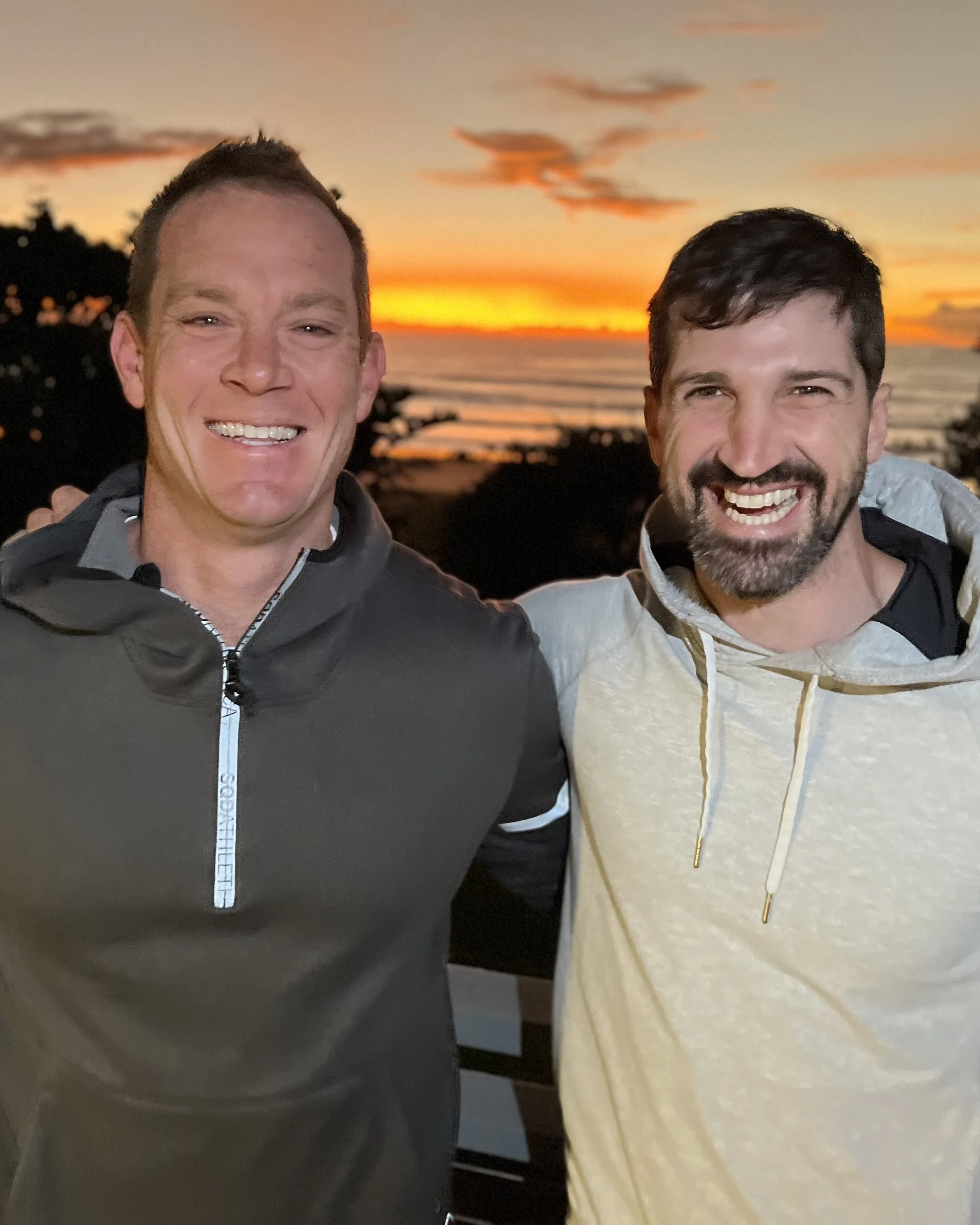Why Men’s Mental Health Needs a Voice
In Australia, men are three times more likely to die by suicide than women.
Three. Times.
It’s a statistic that’s hard to ignore—and one that reveals a harsh reality: too many men are struggling in silence.
These numbers represent fathers, brothers, sons, friends, and colleagues—men we see every day but might not truly see at all. For many, their struggles remain hidden behind the mask of a “tough bloke” who’s got it all together.
We’re taught from a young age to bury our emotions, push through the pain, and never admit weakness. But the truth? Silence isn’t strength. It’s a barrier to healing.
Today, let’s have a real conversation about men’s mental health. It’s time to break the silence, challenge outdated ideas of masculinity, and take action to build healthier, happier lives.
Most of us didn’t grow up in environments that encouraged emotional expression. From the playground to the workplace, we’ve been told to suppress our feelings. We’ve internalised phrases like:
“Man up.”
“Toughen up, princess.”
“Don’t cry, it’s not a good look.”
These messages are subtle but powerful, shaping how we view vulnerability. The result? Many men equate emotional openness with weakness.
I get it because I used to think the same way. I believed being a man meant carrying the weight of the world on my shoulders and never showing a crack. Admitting I was struggling felt like admitting I’d failed.
But here’s the truth: real strength lies in vulnerability.
Being vulnerable doesn’t make you weak; it makes you human. It takes courage to admit when you’re struggling. And it takes even more courage to ask for help.
If we’re going to break the silence, we need to understand the reality men face. Here are some sobering facts about men’s mental health in Australia:
75% of suicides in Australia are men. That’s over 2,000 deaths every year.
1 in 8 Australian men will experience depression, and 1 in 5 will experience anxiety at some point in their lives.
Despite this, over 70% of men never seek help for their mental health struggles.
The statistics speak for themselves: men are hurting, and many feel they have nowhere to turn.
If you’ve ever felt like asking for help isn’t an option, I want you to know this: I’ve been there too. For years, I believed I had to handle everything on my own. I thought being a man meant pushing through the pain in silence.
But eventually, I reached a breaking point. It was only when I opened up to someone I trusted that I started to heal. That moment taught me a powerful lesson: you don’t have to do this alone.
Here are three things that made a difference in my journey:
1. Building a Supportive Community
We’re not meant to face life alone. Whether it’s a trusted mate, a family member, or a mental health professional, having someone to lean on is crucial.
For me, opening up to even one person lifted a huge weight off my shoulders. Sometimes, just knowing someone is there to listen can make all the difference.
Ask yourself: Who in your life could you turn to for support? And more importantly, when was the last time you checked in on a mate?
2. Fitness and Goal-Setting
Exercise isn’t just about physical health—it’s about mental health too. Movement can be a powerful form of therapy.
For me, setting small, achievable goals like running a 5K or committing to regular gym sessions gave me a sense of purpose. It helped me feel more in control of my life, even when everything else felt overwhelming.
Think about one small change you could make today. Maybe it’s a morning walk, signing up for a fitness class, or simply stretching at home.
3. Breaking the Stigma
The stigma around men’s mental health is one of the biggest barriers to seeking help. We’re afraid of being judged or seen as weak.
But here’s the truth: when we share our struggles, we give others permission to do the same.
The more we talk openly about mental health, the more we chip away at the stigma. It’s a ripple effect, and it starts with us.
I’ll never forget the moment I finally opened up. Sitting across from someone I trusted, I shared the weight I’d been carrying for years. It wasn’t easy—it was terrifying. But it was also the most freeing experience of my life.
That conversation didn’t solve everything overnight, but it was the first step towards healing. It reminded me that I wasn’t alone and that I didn’t have to face my struggles in silence.
And that’s what I want for every man reading this—to know that it’s okay to ask for help.
How You Can Start Taking Action
If you’re struggling, here are a few steps to consider:
1. Talk to Someone You Trust
This could be a mate, a family member, or a mental health professional. Taking that first step might feel scary, but it’s the most important one.
2. Prioritise Physical Health
Regular exercise and a balanced diet can work wonders for your mood and mindset. You don’t need to overhaul your entire lifestyle overnight—start small and build from there.
3. Set Small, Achievable Goals
Focus on one step at a time. Whether it’s going for a walk, journalling, or simply getting out of bed, small wins build momentum.
4. Challenge Negative Beliefs
Remind yourself that asking for help isn’t weakness—it’s strength. Reflect on the beliefs that might be holding you back and start questioning them.
5. Check In on a Mate
Sometimes, reaching out to a friend can be just as powerful as seeking help for yourself. Ask how they’re doing—really doing—and be there to listen.
Men’s mental health isn’t just an individual issue—it’s a societal one. When we normalise conversations about mental health, we create a culture where seeking help is seen as a sign of strength, not weakness.
It’s okay not to be okay. Let me say that again: it’s okay not to be okay.
But it’s also important to take the next step. Whether it’s opening up to a mate, prioritising your health, or simply starting the conversation, every action matters.
If this blog has resonated with you, I encourage you to take action today. Start a conversation with someone you trust. Share this post with a mate who might need to hear these words.
Together, we can break the silence and rewrite the narrative around men’s mental health.
Let’s create a world where every man feels empowered to speak up, ask for help, and live authentically.
Because strength isn’t about doing it all alone—it’s about showing up, being seen, and asking for support when you need it.

